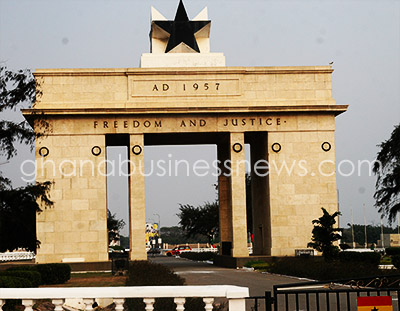Why happenings in The Gambia should be of concern to Ghanaians
 Ghana may not share a border with The Gambia as it does with Côte d’Ivoire, Burkina Faso and Togo but happenings in the tiny West African country could have adverse effects on Ghanaians in so many ways.
Ghana may not share a border with The Gambia as it does with Côte d’Ivoire, Burkina Faso and Togo but happenings in the tiny West African country could have adverse effects on Ghanaians in so many ways.
When Yahya Jammeh, the incumbent President refused to hand over power to Adama Barrow the winner of The Gambia’s 2016 elections, most people anticipated the worst to happen, knowing Jammeh’s history of intransigence and high-handedness, but given the timely intervention of ECOWAS, Jammeh was successfully ousted from the country for the will of the people to prevail.
If the political stalemate had turned into a political crisis, Ghanaians who live and work in The Gambia just like other citizens from elsewhere would be affected.
Reports say there are about 50,000 Ghanaians living in The Gambia mostly working in the fishing industry. There is even a community of Ghanaians known as Ghana Town.
Ghana made contributions of troops and equipment to the ECOWAS Mission in The Gambia (ECOMIG). The Ghana government committed 205 troops to The Gambia to help ECOWAS resolve the crisis, and although tensions are down following Jammeh’s exit, these troops are still in The Gambia to maintain the peace at the request of President Barrow, for a period of six months.
What is worth noting is that the 205 soldiers serving with the ECOMIG have families left behind in Ghana and any negative turn of events would not affect only the soldiers, but their families back home as well as the entire country.
The troops are also in The Gambia at a cost to the Ghanaian taxpayer. There is currently no information, however, on how much it costs Ghanaians, each day the soldiers remain in The Gambia.
There are Ghanaians with established businesses in The Gambia. Just last month Ghanaian actor, John Dumelo launched his fashion and cosmetic shop in The Gambia.
Additionally, Ghana has an Embassy in The Gambia with Ghanaians working as representatives.
And although tensions have gone down, and Adama Barrow was sworn-in in nearby Senegal, he is yet to be inaugurated in his own country in two weeks.
Barrow has started making reforms to some of the country’s laws – laws that Jammeh passed, such as unilaterally declaring The Gambia and Islamic State and instituting a rule for working four days a week. Barrow is now asking that all public sector employees work half day on Fridays in addition to the four working days.
Jammeh implemented the four-day work week policy in 2013, to allow public sector employees to have Fridays off.
The story of The Gambia should interest Ghanaians, in addition to all the reasons stated above – the fact that The Gambia is a Member of ECOWAS, and ousted Jammeh has a Ghanaian wife.
By Pamela Ofori-Boateng
Copyright ©2017 by Creative Imaginations Publicity
All rights reserved. This article, or any portion thereof may not be reproduced or used in any manner whatsoever without the express written permission of the publisher except for the use of brief quotations in reviews.
